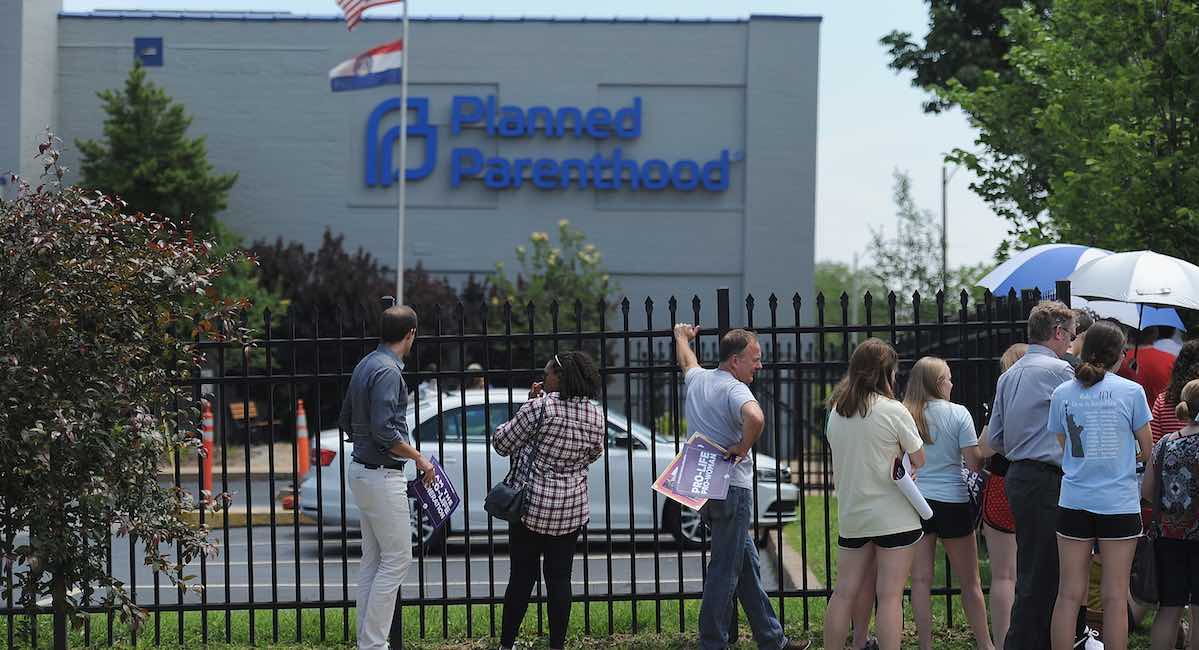(National Review) Earlier this month, the pro-life group Operation Rescue released a report suggesting that Missouri is America’s first abortion-free state. The report indicates that the St. Louis Planned Parenthood appears no longer to be scheduling abortions, which, if true, means that there are currently no clinics performing abortions anywhere in the state.
The pro-life group Defenders of the Unborn organized a rally in St. Louis last week to celebrate, but some of this optimism may be a bit premature. For one thing, the Planned Parenthood facility in St. Louis disputes the suggestion that it no longer performs abortions, and it remains open and licensed to do so. The same location refers women to a Planned Parenthood abortion facility in Fairview Heights, Illinois, approximately 18 miles away. Meanwhile, reports indicate that the BJC Medical Center in St. Louis offers abortions.
Even so, it is clear that the number of abortions performed in Missouri has decreased significantly in recent years. According a report from the Missouri Department of Health and Human Services, only 39 surgical abortions were performed in the state between January and mid November of last year. Additionally, media reports indicate that just seven surgical abortions were performed at the St. Louis Planned Parenthood in November and none were performed in December.
Even before this past year, the abortion rate in Missouri was low. The most recent data from the Centers for Disease Control (CDC) indicate that in 2018, Missouri had the second-lowest abortion rate in the entire country.
Indeed, Missouri serves as a pro-life model for other states. Since the 1970s, Missouri has had an active pro-life movement, though it has not always carefully recorded its own history. Many might not be aware that pro-life activists such as John Ryan and Samuel Lee pioneered various types of street-level activism in the 1970s. With the support of Catholic parishes, 1970s-era protests at abortion facilities regularly drew hundreds of people. This legacy continues today with local organizations such as Coalition for Life and Defenders of the Unborn.
READ: Missouri governor renews $6 million in funding for ‘Alternatives to Abortion’ program
In 1973, the Archdiocese of St. Louis became the first diocese in the U.S. to form a full-time Respect Life Apostolate; its 2019 conference drew nearly 900 people. In 2017, the archdiocese opened a pro-life convent next to the city’s Planned Parenthood, and the convent supports local pro-lifers through prayer and hospitality. A number of religious groups in the area, including the Missouri Catholic Conference, the Missouri Baptist Convention, and Lutherans for Life of Missouri collaborate on pro-life legislative efforts, which have borne fruit in political successes.
Missouri Right to Life is one of the largest and most organized state affiliates of the National Right to Life Committee, and pro-life candidates fare well in both state and local elections. Missouri has a number of pro-life laws including a 72-hour waiting period, an informed-consent law, and a parental-consent law. In 2019, Governor Mike Parson signed the “Missouri Stands for the Unborn Act,” one of the most comprehensive pro-life bills in the country. The bill includes gestational-age bans at eight, 14, 18, and 20 weeks of pregnancy. It also bans abortions chosen on the basis of race, gender, or potential Down-syndrome diagnosis. Finally, it includes a trigger law to protect unborn children if Roe v. Wade and subsequent abortion jurisprudence are overturned.
In addition to enacting protective pro-life laws, Missouri has also prioritized assisting pregnant women in need. The Archdiocese of St. Louis holds an annual collection to fund local pregnancy-assistance centers, and in 2020, the Respect Life Apostolate awarded $66,000 in grants to agencies that assist pregnant and parenting mothers. Beginning in 2007, Missouri taxpayers became eligible for tax credits if they supported pregnancy-help centers. Currently, taxpayers who support the 74 qualifying centers may be eligible for a tax credit up to 70 percent of their donation. A 2017 report from the Alliance for Life in Missouri found that these qualifying centers served 32,296 clients, including 3,845 people who took parenting classes and 6,846 individuals who received material resources.
During the Biden administration, it will be difficult for pro-lifers to change federal public policy. They will have to play defense and work to save the Hyde amendment, which prohibits direct federal funding of elective abortion. But there is still plenty that pro-lifers can do at the state level. According to the Guttmacher Institute, more than 350 state pro-life laws were passed during the Obama administration. As pro-lifers regroup from the 2020 election, Missouri’s multi-pronged strategy of street-level activism, church involvement, pro-life legislation, and support for pregnant women should serve as a model for other states to follow.
Editor’s Note: This article was published at National Review and is reprinted here with permission.
“Like” Live Action News on Facebook for more pro-life news and commentary!







